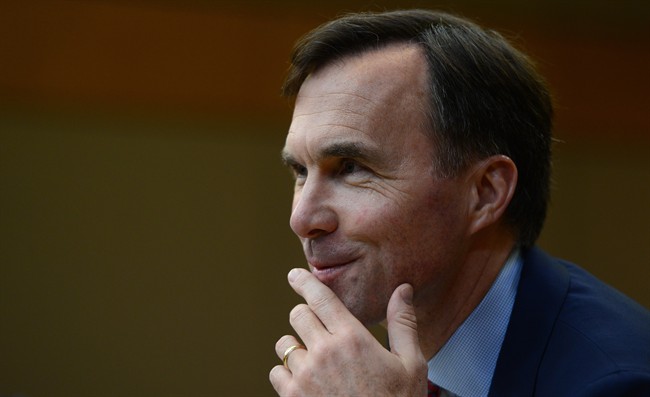The Trudeau Liberals have told the provinces and territories how much more money in federal transfers they should expect to receive next year to pay for health care – and the amount falls short of what premiers want.

Federal finance figures released Sunday morning show the Liberals are banking on a three per cent increase in health care funding, far below what provinces and territories are requesting.
In all, the Liberals intend to provide $37.15 billion next year to pay for health care in the provinces and territories, up from the almost $36.1 billion the provinces and territories received this year.
The three per cent increase is the figure the federal government has been working with going into the meetings with provinces and territories as the two levels of government prepare for negotiations over the future of health funding.
WATCH: Provincial health care struggles

The Liberals have shown no interest in budging on the numbers, but provinces and territories are set to turn up the pressure starting Sunday evening when federal Finance Minister Bill Morneau is scheduled to sit down to dinner with his counterparts. Health ministers are scheduled to join the talks on Monday about long-term health funding.
On Friday, Morneau called provincial demands for bigger federal health funding transfers “out of the realm” of anything Ottawa would consider.
READ MORE: Provincial health demands ‘out of the realm’ of possibility: Bill Morneau
He insists the federal government won’t agree to keep the annual increases in transfers above three per cent, nor will the government raise its share of spending to 25 per cent of provincial health budgets.
- How caregiving impacts a generation of Canadians: ‘Unpaid work does not end’
- Thousands of Canada’s rail workers have a strike mandate. What happens now?
- Bird flu: Experts urge more surveillance in Canada — before it’s too late
- Can the Bank of Canada cut rates before the U.S.? What Macklem, economists say
Ottawa’s plan to reduce the increases in transfers from six per cent to three per cent would trim nearly $1.1 billion a year from its combined payments to the provinces.
The provinces say that would leave big holes in their health-care budgets.
Morneau does say the federal government would put a “significant” amount of money into specific areas such as home care and mental health over a period longer than five years.
Some provinces support a 10 year federal funding idea that would see health transfers increase by 5.2 per cent a year, while others want the federal government to gradually increase its share of provincial health-care budgets to 25 per cent.
Quebec Health Minister Gaetan Barrette possibly set the tone for the meeting, tweeting on Saturday that Prime Minister Justin Trudeau’s government was giving little time to negotiate a long-term funding deal for health care. On Sunday, he questioned whether Trudeau would break his promise for federal cash to pay for home care.
The figures released by the federal government Sunday also show that funding for social programs will also go up by three per cent, the same annual increase seen over the last nine years. The transfer next year will be worth $13.75 billion, up $400 million from the $13.35 billion last year.
In all, the federal government is planning to provide provinces and territories with about $72.8 billion in transfer payments next year, including equalization payments to qualifying provinces.
READ MORE: Fact check: Is Ottawa cutting $60B in health funding?
Four provinces won’t qualify for equalization payments next year under the formula used to calculate the payments: Newfoundland and Labrador, Saskatchewan, Alberta and British Columbia. The remaining six provinces will combined receive $18.25 billion in equalization payments with Quebec receiving the largest share at $11 billion.
The constitutionally guaranteed equalization program redistributes money to poorer provinces, where the cash will help fund public services.



Comments